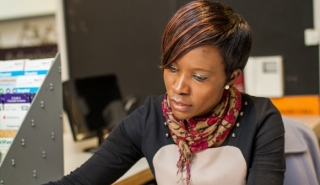In this section
Trust joins coordinated national effort to trial cancer vaccine
19 September 2025
Patients at York Hospital being treated for advanced head and neck cancer will be able to access a trial for a potential groundbreaking cancer vaccine.
Our Trust has been selected as part of a national expansion by the NHS Cancer Vaccine Launch Pad (CVLP),
The CVLP was launched by NHS England and is coordinated by the Southampton Clinical Trials Unit, based at the University of Southampton.
This latest trial to be included in the CVLP programme is an investigational cancer vaccine, clinically known as AHEAD-MERIT (BNT113-01). It's a pioneering mRNA vaccine designed by multinational company BioNTech.
It is the latest cancer vaccine trial to use cutting-edge microbiology. The vaccine is designed to help the immune system recognise and kill cancer cells which express human papillomavirus (HPV) proteins.
Head and neck cancer is very common in the UK, and the vaccine aims to train the immune system to fight the cancer. Eligible patients being treated at York Hospital will be identified by the Trust’s Head and Neck Team during discussions around their cancer treatment. They will then be referred to St James’ University Hospital, Leeds, to take part.
Mr Richard Taylor, Consultant Oral and Maxillofacial Surgeon and Principal Investigator of the trial at our Trust, said recruitment of patients directly to the study signalled a “Trust milestone” and could potentially have a big impact for patients.
He explained: “Joining this study provides a route for some York patients with advanced head and neck cancers to participate in a wider national research programme, where a vaccine may prove to be a significant new treatment in fighting this disease.”
More than 11,000 new head and neck cancer cases are diagnosed in England every year, with cancers typically developing in the mouth, throat, or voice box.
This is the third national cancer vaccine trial to be run through CVLP, which has already helped refer hundreds of patients to trials of vaccines for bowel and skin cancers.
Despite advances in care for patients with head and neck cancer, the advanced form of the disease is difficult to treat and has high rates of recurrence, with two-year survival rates at under 50%.
The first patients with head and neck cancer in England have received the investigational mRNA cancer vaccine in a clinical trial.
Chris Curtis was diagnosed with head and neck cancer in 2011. He said: “As a survivor of head and neck cancer, I know first-hand the physical, emotional, and psychological toll this disease takes, not just on the patient, but on the entire support system.
“With this cancer, you live in fear every day, so anything that could help control the disease or give people peace of mind is groundbreaking. It'll allow people to get on with their lives and move forward.”






